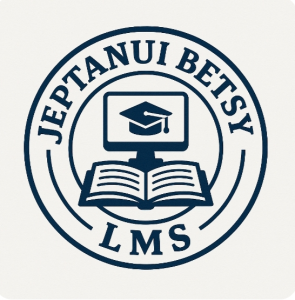- Teacher: Betsy Jeptanui
My Learning Management System
-
Welcome to your new Gnomio site
Now, you are in control!
Moodle is an open-source Learning Management System (LMS) that provides educators with the tools and features to create and manage online courses. It allows educators to organize course materials, create quizzes and assignments, host discussion forums, and track student progress. Moodle is highly flexible and can be customized to meet the specific needs of different institutions and learning environments.
Moodle supports both synchronous and asynchronous learning environments, enabling educators to host live webinars, video conferences, and chat sessions, as well as providing a variety of tools that support self-paced learning, including videos, interactive quizzes, and discussion forums. The platform also integrates with other tools and systems, such as Google Apps and plagiarism detection software, to provide a seamless learning experience.
Moodle is widely used in educational institutions, including universities, K-12 schools, and corporate training programs. It is well-suited to online and blended learning environments and distance education programs. Additionally, Moodle's accessibility features make it a popular choice for learners with disabilities, ensuring that courses are inclusive and accessible to all learners.
The Moodle community is an active group of users, developers, and educators who contribute to the platform's development and improvement. The community provides support, resources, and documentation for users, as well as a forum for sharing ideas and best practices. Moodle releases regular updates and improvements, ensuring that the platform remains up-to-date with the latest technologies and best practices.
Links of interest:
(You can edit or remove this text)
Available courses
Resource Management trainees with the essential knowledge, skills, and attitudes required to effectively plan, attract, select, and retain competent employees within an organisation. This unit focuses on aligning human resource strategies with organisational goals to ensure the right people occupy the right positions at the right time.
Trainees will explore the key stages of the resourcing process — from job analysis, recruitment, and selection to induction, deployment, and retention. Emphasis is placed on ethical and professional practices, compliance with labour laws, and the application of modern HR technologies in resourcing. The course also develops trainees’ analytical and decision-making abilities necessary for workforce planning and managing talent in dynamic work environments.
- Teacher: Betsy Jeptanui

📘 Course Title: Economics
🆔 Course ID: 2908305_3
💼 Programme: Diploma in Human Resource Management (Module 3)
This course provides learners with a foundational understanding of economic principles and how they apply to real-world business and human resource environments. It introduces key concepts in microeconomics and macroeconomics, emphasizing the role of economic systems, markets, demand and supply, production, and national income. The course also explores the economic environment in which organizations operate, equipping HR professionals with the economic insight necessary for effective decision-making, budgeting, and policy implementation.
Special focus is placed on understanding inflation, unemployment, taxation, government policy, and how economic factors affect labor markets, wage structures, and employee
welfare.
- Teacher: Betsy Jeptanui
